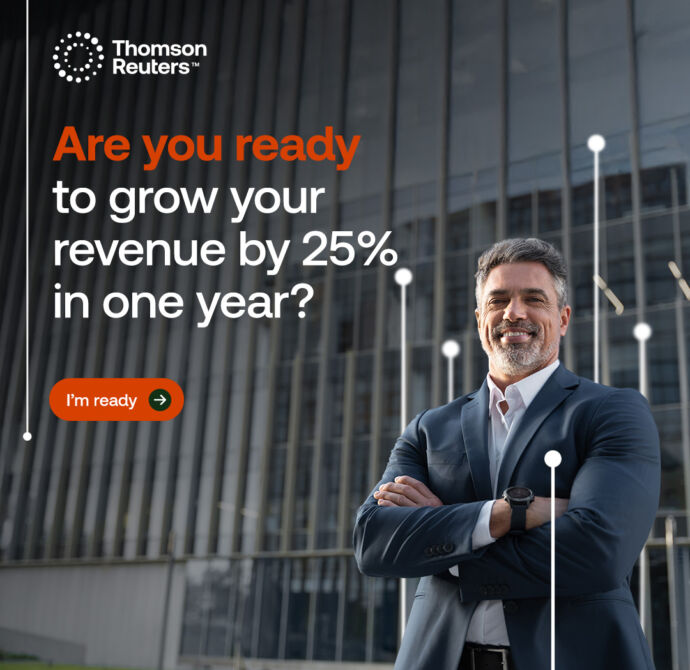To mark Women’s History Month, we are thrilled to introduce “Spotlighting Women in Advisory Practice,” a blog series that highlights the achievements of four remarkable women who have revolutionized their accounting firms through advisory services. These professionals have transcended traditional tax roles to form deep, strategic partnerships with their clients.
Jump to ↓
| The transformative potential of AI in advisory |
| Breaking through traditional pricing models |
| Empowering teams through technology |
| Challenges and considerations when adopting tech and AI |
| Embracing technology to unlock advisory services |
Today, many forward-thinking accounting firms are driving business growth through advisory services. This transition, however, requires a shift in both mindset and business model, as well as a stronger role for technology.
When considering the transition to advisory, many firms face challenges such as limited time, outdated workflows, and an inability to deliver personalized, data-driven insights. These limitations can hinder your firm’s ability to fully address your clients’ evolving financial needs.
However, the dawn of AI-powered tax technology offers a unique opportunity to overcome these barriers. By automating routine tasks and enhancing tax research, AI empowers accountants to deliver proactive tax strategies that engage and retain clients, while also boosting revenue.
Let’s take a look at how tax and accounting professionals can harness AI-powered tax technology to unlock the power of advisory services.
The transformative potential of AI in advisory
There is no doubt that AI has fundamentally reshaped the accounting profession by shifting the focus from routine tasks to high-value, strategic planning. Traditionally, accountants spent most of their time on manual data entry, compliance, and transactional processes, but with AI’s ability to automate repetitive tasks, you’re now free to engage in meaningful work that provides greater value to your clients.
AI-powered tax technology can also streamline tax preparation, bookkeeping, and audit workflows, significantly reducing errors and improving efficiency. With machine learning algorithms, your firm can quickly process large datasets, identify anomalies, and ensure compliance with ever-changing tax regulations, which enables your staff to spend more time on personalized client support.
In addition, AI excels at analyzing data trends and patterns, enabling your firm to deliver more proactive insights. For example, predictive analytics can identify potential financial risks or opportunities for clients, helping you move from reactive problem-solving to proactive strategy-building. This shift empowers you and your staff to act as trusted advisors rather than transactional service providers.
According to Katie Lomness, CPA and Founder of Lomness CPA and last year’s Thomson Reuters Firm of the Year, AI-powered tax technology has transformed her firm’s traditional accounting workflows—and it’s only the beginning.
|
Breaking through traditional pricing models
Along with the move to advisory services, many firms are realizing that hourly billing doesn’t fully capture the true value of their services. Fundamental to this shift in mindset is recognizing that your knowledge and experience are valuable — and they shouldn’t be given away for free.
A value-based approach assigns a price based on the value your services bring to the client. The cost varies from client to client because it is based on what they value most and what they are willing to pay for that value.
While value pricing has many benefits, perhaps the most significant result is how your clients respond to it. They’re no longer worried about the clock each time they talk to you; instead, they can begin collaborating with you. They become part of the process, with a deeper understanding of your partnership and the value they will receive before work even begins.
“Delivering advisory services and being able to pitch these bigger engagements has greatly increased my confidence and ability to sell and get paid for the knowledge that I have,” says Katie. “I used to give away all of this information for free and now I have the confidence to be like, no, actually I don’t need to answer that quick question for you in a five-word e-mail. That’s going to be an hour-long discussion that we need to charge for.”
Empowering teams through technology
With ever-changing tax legislation, there is no doubt that tax research can be time-intensive, especially when staff and resources are stretched thin. GenAI excels at tracking changing tax regulations and streamlining tax research for fast, trusted answers, thus reducing the time your firm spends on manual searches.
AI-driven tax research tools, such as Checkpoint Edge with CoCounsel, simplify tax research by delivering concise, professionally summarized answers complete with links to relevant primary and secondary source materials. This empowers even junior staff to handle complex client queries confidently and quickly—and ensures your firm stays up to date with the latest IRS rulings and tax regulations.
As Lomness notes, “Starting an advisory firm is definitely breaking through the old-school way of thinking and adapting new technologies; being willing to change processes, become more efficient, listen to your team, and empower them.”
Challenges and considerations when adopting tech and AI
With all of its benefits, integrating AI into your firm is not without its challenges. From transitioning existing processes to ethical considerations around data privacy, the use of AI requires careful planning and oversight.
Publicly available generative AI platforms like ChatGPT pull data from across the internet. This means that answers may be inaccurate, out-of-date, or quite simply unverified. This can lead to accuracy, privacy, and security concerns, not to mention the possible financial impacts and reputational damage that can come with unvetted tax research.
Additionally, the integration of AI requires a period of adaptation for staff. However, by employing a professional-grade AI-enabled tax research platform, like Checkpoint Edge with CoCounsel, your firm can benefit from secure technology, trusted sources, and best practices that ensure your staff is effectively using AI tools and interpreting AI-generated data.
Embracing technology to unlock advisory services
The future of advisory services lies in this balance—leveraging AI to transform operations while maintaining a human-centered approach that prioritizes client relationships and ethical considerations.
If you’re ready to harness AI technology to unlock your firm’s potential, download our comprehensive white paper below ↓
 |
|
 |
|
 |
|











